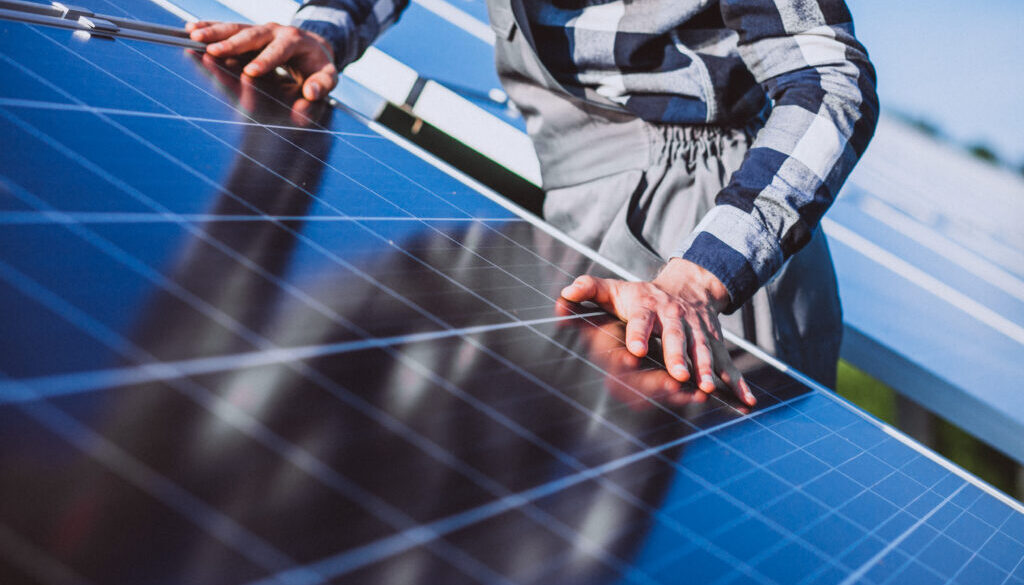Solar Panels in the UK: Are They Worth the Investment?
Solar panels are becoming an increasingly popular way for UK households to save on energy costs, reduce carbon footprints, and even increase property values. But are they really worth the investment? Here, we explore the benefits and limitations of solar energy in the UK, how long it might take to see a return on investment (ROI), and the available government incentives that make going solar even more attractive.
Are Solar Panels Useful in the UK?
The UK’s climate may seem unpredictable, but the country actually receives enough sunlight to make solar energy viable. Thanks to advancements in solar technology, even the cloudy skies common in Britain don’t limit solar panel efficiency as much as one might think. Most UK homes can generate significant energy from solar panels, especially in southern parts of the country.
Solar panels can:
- Reduce Energy Bills: By generating your own electricity, you can save on your monthly utility bills.
- Increase Energy Independence: With electricity prices on the rise, solar panels allow households to become less reliant on grid energy.
- Cut Carbon Footprint: Solar is a green, renewable energy source, meaning every kilowatt generated offsets fossil fuel reliance and reduces CO₂ emissions.
Financial Investment: Cost and Payback Period
The initial cost of solar panel installation in the UK can vary significantly, typically between £5,000 and £10,000 for a standard 4kW system (suitable for an average family home). While this might seem high, the potential savings make it worth consideration.
- How Much Can You Save?
- Most UK households save anywhere from £150 to £300 per year on energy bills.
- For homes that pair solar with battery storage, the savings can be even greater as stored energy can be used during peak times when grid energy is most expensive.
- How Long is the Payback Period?
- On average, it can take between 10 and 20 years for solar panel installations to pay for themselves.
- If you invest in a solar battery, which allows you to store excess energy and use it at night or during high-demand hours, the payback period may shorten.
- Government incentives (explored below) can also significantly shorten this period.
Government Incentives and Schemes
The UK government has implemented several schemes to promote renewable energy, making solar panels more affordable and the payback period shorter for households.
1. Smart Export Guarantee (SEG)
The Smart Export Guarantee (SEG) is a government-backed initiative that pays households for the extra electricity they generate and export back to the grid. Here’s how it works:
- Who Qualifies: Any household with a certified solar system of up to 5MW can qualify.
- How It Works: Energy suppliers offer a set tariff per kWh for exported electricity. Rates vary by provider, but some offer as much as 5.5 pence per kWh.
- Savings Impact: This incentive helps offset the initial cost of the solar panels, making the investment more financially appealing and the payback period shorter.
2. VAT Reduction
The VAT rate on energy-saving materials, including solar panels, was reduced to 0% in 2022. This means homeowners pay less tax on the cost of installation, bringing down the initial expense and making solar panels more accessible to more people.
3. Local Government Grants and Loans
Several local councils across the UK offer additional grants or loans for renewable energy projects, including solar panel installation. These schemes vary by region, but they often target low-income households or areas with high fuel poverty. Checking with your local council to see if such schemes are available in your area is always worthwhile.
When is the Best Time to Install Solar Panels?
The best time to install solar panels is typically in the spring or early summer. This timing allows you to maximize the sunlight throughout the summer months, helping you generate more electricity and saving on energy costs as soon as possible. However, solar panel installers often have more availability and competitive pricing in the autumn and winter, so if you’re looking to save on installation costs, those seasons could be ideal.
Conclusion: Are Solar Panels Worth It?
In the UK, solar panels can be a practical and beneficial investment for many households, offering long-term savings on electricity bills, the potential to earn through the SEG, and an environmentally friendly way to reduce carbon emissions. While the initial cost is significant, government incentives and the reduction of VAT make solar panels more accessible. Most UK homeowners can expect to recoup their investment in 10 to 20 years, with the potential for quicker returns if they take advantage of government incentives and pair solar panels with battery storage.
Overall, if you plan to stay in your home for the long term and are looking for ways to reduce both your energy bills and environmental impact, installing solar panels could be a wise and sustainable choice.
